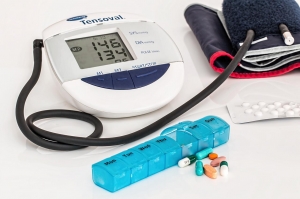Senior care administration is undergoing a significant transformation, driven by technological advancements, evolving care models, and the growing need for more personalized and efficient care. As the population ages, senior care facilities are grappling with increasing demand, and administrators must adapt to meet these challenges. Today's administrators are no longer just focused on managing day-to-day operations—they are increasingly expected to leverage modern trends like digital health technologies, telemedicine, and data-driven decision-making to improve care and streamline processes.
This article explores the trends shaping the future of senior care administration and highlights the importance of hiring administrators who are skilled in these areas to ensure that senior care facilities can thrive in an evolving landscape.
The Role of Digital Health Technologies
One of the most profound changes in senior care administration is the integration of digital health technologies. As healthcare increasingly moves toward digital solutions, senior care facilities are no exception. Digital tools, such as electronic health records (EHRs), remote patient monitoring, and mobile health apps, are being widely adopted to enhance care delivery, improve communication, and streamline administrative tasks.
For senior care administrators, understanding and implementing these technologies is crucial. EHR systems, for example, allow for more efficient documentation, ensuring that patient records are accurate, up-to-date, and easily accessible to all healthcare providers involved in a resident's care. This reduces the risk of errors and improves coordination between different care teams, ultimately leading to better outcomes for residents.
Moreover, the use of remote monitoring devices, such as wearable sensors that track vital signs, provides continuous, real-time data that allows healthcare teams to detect potential health issues before they become serious. Administrators must be able to oversee the integration of these technologies into their facilities and ensure that staff are trained to use them effectively.
In the hiring process, senior care facilities are increasingly looking for administrators who are familiar with digital health technologies and can lead their organizations through the transition to a more tech-savvy model of care. These individuals need to be comfortable navigating health tech systems and possess the vision to incorporate new innovations that improve care delivery.
Telemedicine in Senior Care
Telemedicine has become a vital tool in the healthcare landscape, and its importance in senior care is rapidly growing. For seniors, especially those with mobility issues or chronic conditions, telemedicine offers a convenient way to access medical consultations without leaving the comfort of their residences. This technology allows care providers to monitor patients, consult with specialists, and manage care remotely, reducing the need for frequent in-person visits.
For senior care administrators, incorporating telemedicine into their facilities requires more than just installing the necessary technology. It also involves coordinating with healthcare providers, ensuring that telemedicine appointments are scheduled and managed effectively, and educating residents and their families on how to use the service.
Additionally, administrators must navigate regulatory and compliance issues related to telemedicine, such as ensuring that data security protocols are in place to protect patient privacy. As telemedicine becomes more integrated into senior care, administrators skilled in managing these complexities will be in high demand.
Hiring administrators who understand the benefits and challenges of telemedicine is essential for senior care facilities looking to modernize their care offerings. These administrators will play a pivotal role in integrating telemedicine into the broader care strategy, ensuring that residents receive high-quality, accessible care, even when in-person visits are not possible.
Data-Driven Decision-Making
Data is increasingly at the heart of healthcare decision-making, and senior care is no exception. From tracking patient health metrics to analyzing operational efficiency, data-driven approaches allow senior care administrators to make more informed decisions that improve both care quality and facility performance.
For example, analyzing patient data can help administrators identify trends in resident health, such as recurring health issues or patterns in medication use. This allows for more proactive care management, reducing hospitalizations and improving overall outcomes. Administrators can also use data to assess the effectiveness of care protocols, identify areas for improvement, and ensure that resources are being allocated efficiently.
Beyond patient care, data analytics can also be used to improve operational management within senior care facilities. For instance, tracking metrics related to staff performance, occupancy rates, and resource utilization can help administrators optimize workflows, reduce costs, and enhance the overall efficiency of the facility.
Given the growing importance of data in senior care, administrators with strong data analysis skills are increasingly sought after. These individuals must be able to interpret complex data sets, develop actionable insights, and use those insights to drive strategic decision-making. As data-driven technologies continue to advance, administrators who can leverage this information to improve both care and operations will be essential to the success of senior care facilities.
The Changing Skillset of Senior Care Administrators
As the landscape of senior care continues to evolve, the role of senior care administrators is becoming more multifaceted. While traditional management skills are still important, modern administrators must now possess a broader skillset that includes technological literacy, data analysis, and the ability to integrate new care models into their facilities.
Senior care facilities are increasingly seeking administrators who can navigate the complexities of a digital healthcare environment. This includes individuals who are comfortable using EHRs, managing telemedicine services, and interpreting data to make informed decisions. Administrators must also be capable of leading their teams through change, ensuring that staff are properly trained and that new technologies are implemented smoothly.
In addition to technical skills, administrators must possess strong leadership and communication abilities. The success of any modernization effort depends on the administrator's ability to guide staff, communicate the benefits of new technologies to residents and their families, and foster a culture of continuous improvement within the facility.
How the Future of Senior Care Unfolds
The future of senior care administration is being shaped by modern trends such as digital health technologies, telemedicine, and data-driven decision-making. These advancements are not just improving the quality of care for residents; they are also transforming the way senior care facilities operate. As these trends continue to evolve, the need for skilled administrators who can lead their organizations through this period of change is becoming increasingly apparent.
Hiring administrators who are adept in these areas is essential for senior care facilities looking to thrive in a rapidly changing environment. By embracing modern technologies and approaches, these administrators can help their facilities improve care delivery, enhance operational efficiency, and stay competitive in an increasingly complex healthcare landscape. In this new era of senior care, the administrators who can successfully integrate these innovations will be the ones who drive the industry forward.






